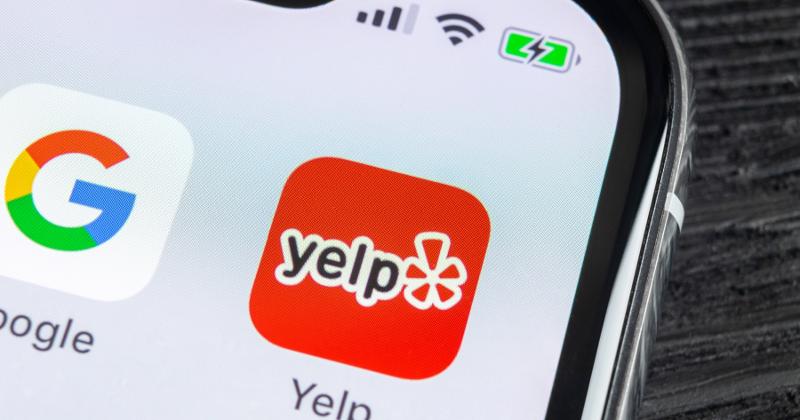
Restaurant review site Yelp is suing Google, alleging that the search engine giant steers consumers to its own content in search results even though it’s not always the best option.
Yelp said it hopes the lawsuit, filed Wednesday in federal court in San Francisco, will help level the playing field of internet search and promote competition and innovation. It’s also seeking monetary damages, though it didn’t specify an amount.
The suit comes just a few weeks after a federal judge ruled that Google violated antitrust law by illegally monopolizing the search engine market, in part by paying companies like Apple and Android to be the default browser on their devices. The landmark ruling opened the door for additional antitrust claims like Yelp's.
According to Yelp, when a consumer searches for a local business or restaurant on Google, the site manipulates the results to present Google content such as reviews, maps and business pages, “regardless of the comparative poorer quality of its own properties,” Yelp co-founder and CEO Jeremy Stoppelman wrote in a blog post.
Stoppelman noted, for instance, that about a third of Google reviews consist of star ratings with no text, which he said are less useful for consumers. On Yelp, all reviews must include text.
“Rather than compete on the merits with companies like Yelp, Google has so effectively self-preferenced its offerings that an increasing volume of searches result in zero clicks, meaning users never leave Google’s search results page,” Stoppelman wrote.
That would be bad for Yelp, which generates most of its revenue from selling advertisements within its platform.
Google had not responded to a request for comment by publication time.
Yelp has long viewed Google as an adversary. In 2011, a Federal Trade Commission investigation found that Google was scraping reviews from Yelp and other sites and presenting the information as its own.
As for restaurants, many have mixed feelings about review sites like Yelp and Google. While they can help attract new customers, poor ratings can have a real impact on a restaurant’s business, and there is often little an operator can do about bad reviews.
If Yelp’s lawsuit leads to changes at Google, it could impact how consumers find and interact with local restaurants online.
Members help make our journalism possible. Become a Restaurant Business member today and unlock exclusive benefits, including unlimited access to all of our content. Sign up here.